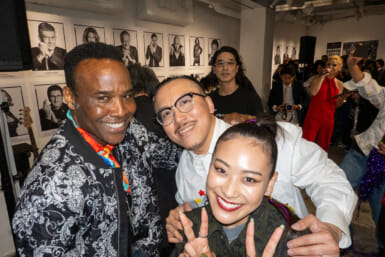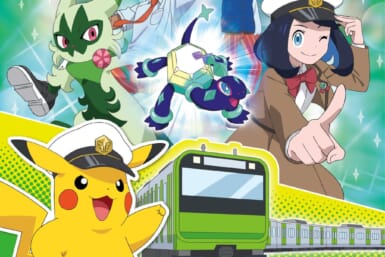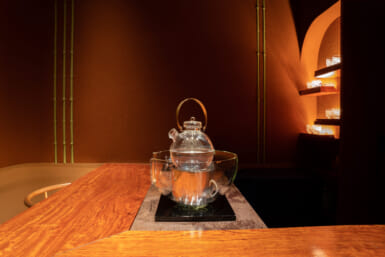The humans of Tokyo make this metropolis pulse with energy. We check in with four of the many Tokyo voices that make the cacophony a symphony.
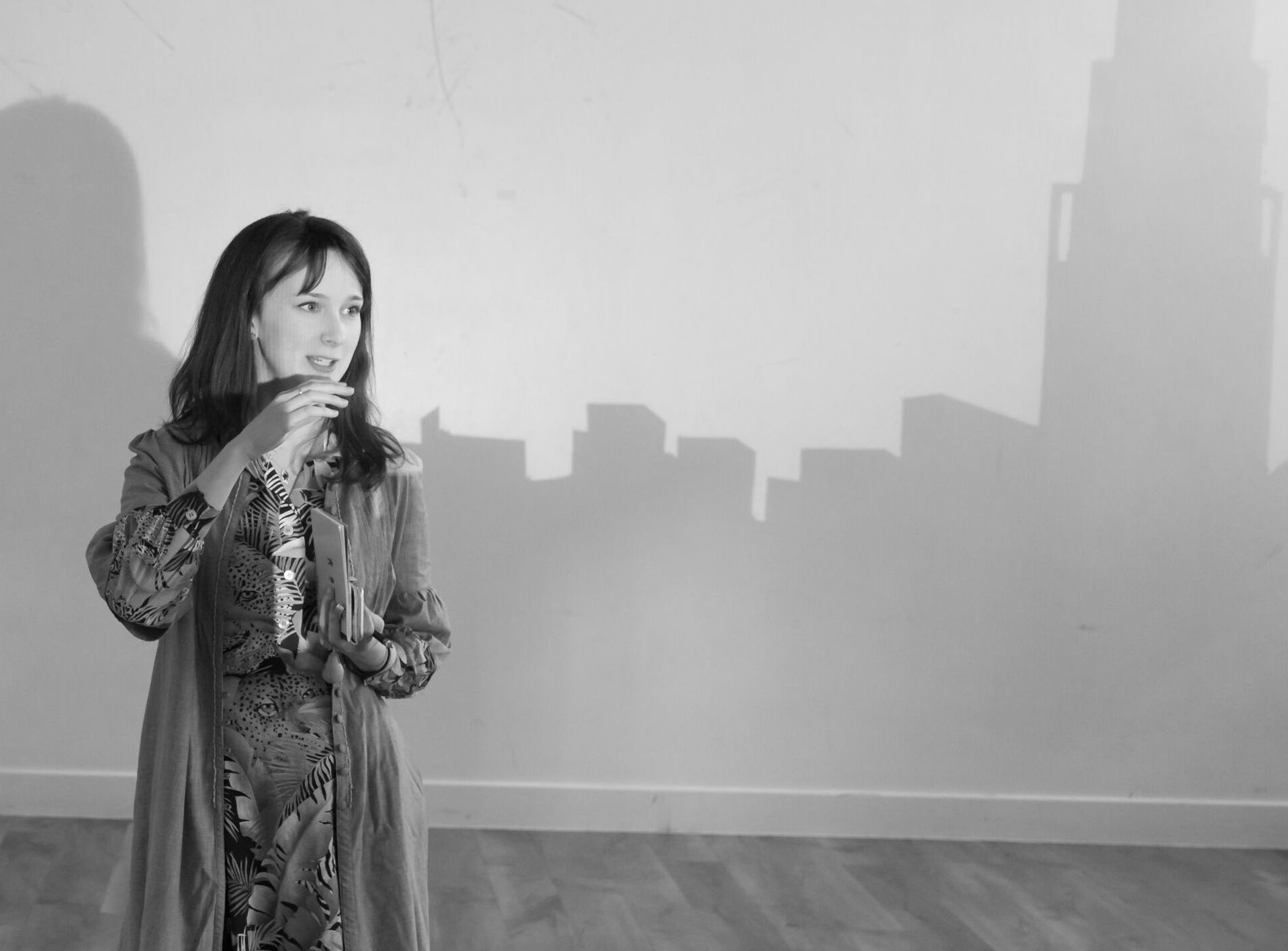
Photo by Geoff Wilson
Alexandra Rutter, Theater Director
Co-founder and director of the UK’s Whole Hog Theatre company, Rutter produces Anglo-Japanese collaborative theater, often based on Japanese animation, comics and video games. Most notably, she directed the world’s first stage production of the Ghibli film Princess Mononoke.
What’s your current obsession?
Having just directed Romeo & Juliet at Theatre Cocoon, I rekindled my love of reimagining classic texts for new audiences. In contrast, I’m fascinated with video games on stage. I’m playing Everybody’s Gone to the Rapture by The Chinese Room and hearing about new software platforms such as Existent by Light Garden Studio that enable previously unimaginable interactive environments.
What’s a dream story you wish you could adapt for the stage in the future?
Satoshi Kon’s Tokyo Godfathers (a new adaptation for the UK) or Mamoru Hosoda’s Wolf Children.
What Japanese film or series captures the Tokyo you know best?
Makoto Shinkai’s The Garden of Words. It’s a love letter to a part of Tokyo near where I first lived, and in the rainy season, which is how I first experienced it. I was due to adapt it for the stage when the pandemic hit, so I’m hoping it will be re-announced soon.
If all the world’s a stage, share with us an unforgettable scene in Tokyo that has played out in front of your eyes.
It’s the little things, like bygone-era yakiimo trucks pootling down your road or the guy in Shimokitazawa who does dramatic street readings of manga on a Saturday night.

Photo by @_icyphoto_
Steffie Harner, Creative Technologist and Talent
Better known as @cybersteffie online, Harner bridges the worlds of tech and creativity. She has a passion for the cyberpunk aesthetic, creating cyberpunk-inspired portraits and videos, some of which are also sold as NFTs.
What’s your current obsession?
AI tools: Stable Diffusion and OpenAI Playground. These free tools can help us to identify underlying patterns and trends and go beyond what we could do just on our own.
You’re a techie, but what’s the most analog thing you enjoy?
I’m a huge chinmi (rare delicacy) foodie. Japanese cuisine is so vast, but my favorite sub-cuisine lies in horumon (offal), creative izakaya food and hole-in-the-wall establishments.
Cyberpunk is the combination of high-tech and lowlife. What’s your favorite dirty corner of Tokyo and your favorite ultra-clean modern part?
Dirty: My old stomping grounds — the chaotic, neon-lit streets of Kabukicho. On a rainy day, they’re an excellent backdrop for cyberpunk-style adventures. Clean: West Shinjuku, with the two majestic structures of the Tokyo Metropolitan Government Building and the Cocoon Tower. The symmetrical stretch of pavement and sidewalks that seem to go on forever. Truly Blade Runner on a foggy night.
The year is 2053. What do you imagine Shibuya Crossing will look like?
The streets are alive with holographic advertisements radiating like blinding stars, while cyber-enhanced citizens hustle past, their augmented reality glasses replacing the smartphones that used to occupy their eyes. Never-halting traffic of hover-taxis, delivery drones and classic vehicles below.
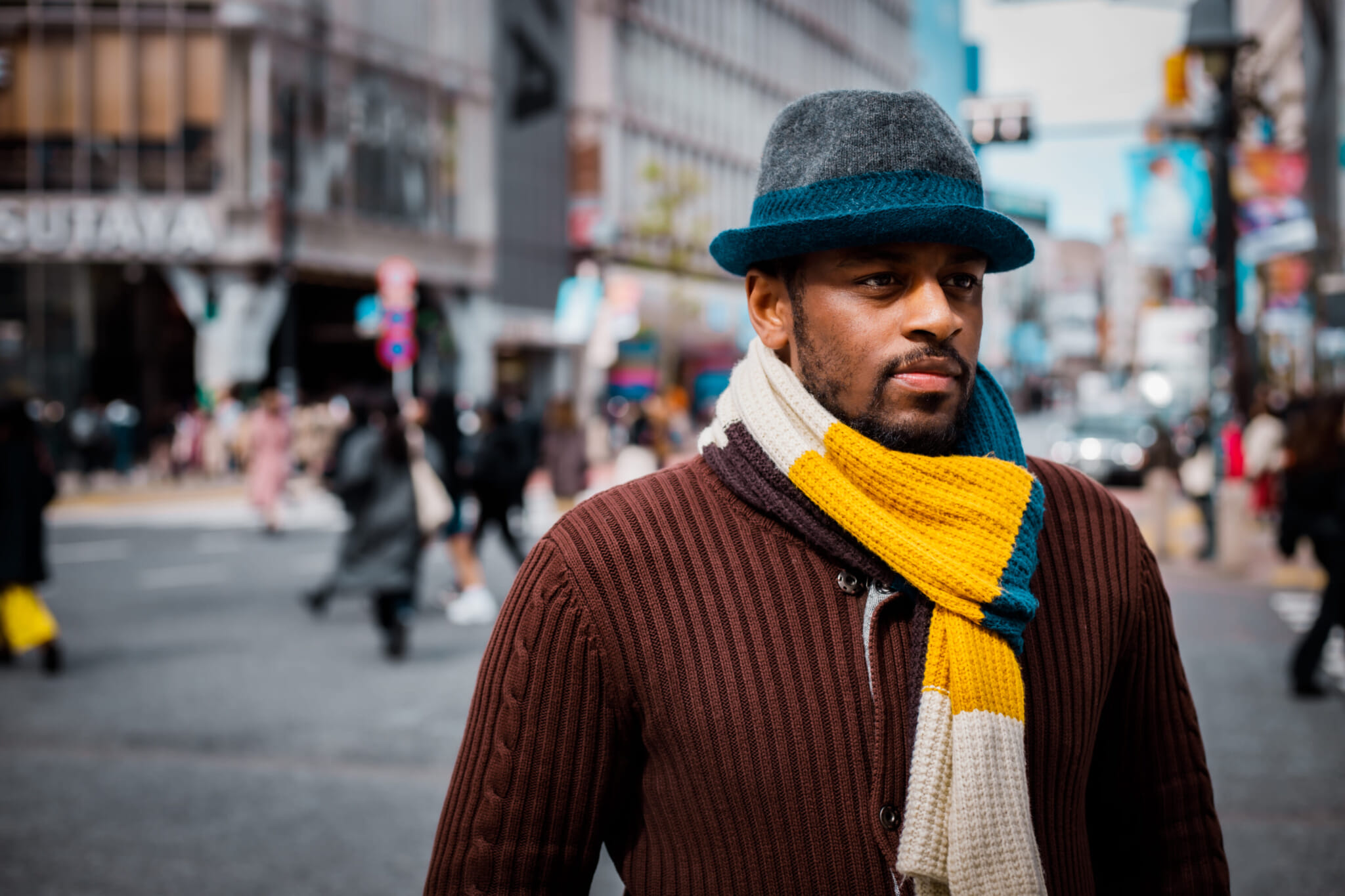
Terrence Holden, Podcast Producer and Connector
Originally from Brooklyn, New York, Holden is now based in Tokyo and listens to the voice of Tokyoites as a podcast producer and host. After producing 98 episodes of the Tokyo Speaks podcast, which was a mosaic of diversity that reflected the multifaceted Tokyo we know and love, Holden is now working on the production of his second podcast.
What’s your current obsession?
I’m currently obsessed with completing season one of a storytelling podcast I’m producing called Vending Machine Stories. This will be the first project produced by Tokyo Speaks, which is now transitioning from a podcast to a podcast production service.
You champion diversity, equity and inclusion (DEI) in Japan. Any projects you’re currently working on?
Every project that I personally create has a DEI spirit. I want to continue sharing stories through podcasts, and I’m always conscious of highlighting more diverse perspectives.
What makes Tokyo feel truly like home?
It’s the people I’ve connected with and supported over the years. It seems like the perception people have of me is that I know everybody.
What is something about Tokyo that you only realize if you live here?
That Tokyo is more than sushi, shrines, anime and other forms of pop culture. Tokyo has the potential to be a lot more than what it’s commonly known for.

Julia Puckett, Author, Podcaster and Wellness Guru
This is how Julia Puckett introduced herself to TW: British Japanese and an Elvis Presley fan. Her choice of words reflects the cosmopolitan person that she is. She also hosts the bilingual podcast The Lighthouse with Jupuckett, where she says that speaking another language is like having another soul.
What’s your current obsession?
Digital fashion. Also, the fact that Phoebe Philo is launching her brand this year.
What is your favorite Japanese word and a favorite English word that doesn’t easily translate?
The word “magic” has a special place in my heart. But I love all words: They’re what make up our thoughts and therefore our reality. I love that a Japanese word can describe an entire situation, like “kawaakari” (the reflection of the moonlight off flowing water). I also love and often use the English word “intentional,” and I still haven’t found a Japanese translation that resonates with me.
As someone passionate about physical and emotional wellness, what’s one lifestyle point that Tokyoites should change?
A lifestyle habit and a mindset tool I would love for anyone to consider implementing today would be, when you see something beautiful in someone, tell them, and to remember that you’re exactly where you need to be, and everything will fall into place.
Tell us a Tokyo secret!
There is magic in spending time connecting with Japanese elders — the secrets are theirs to share and yours to keep.
Read the previous installments of TW’s Voice of Tokyo.


